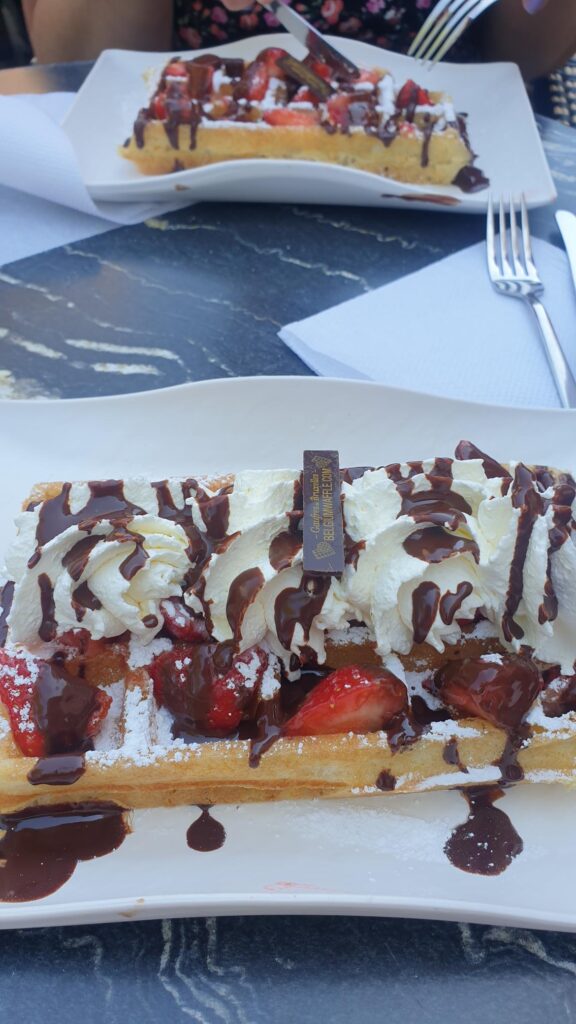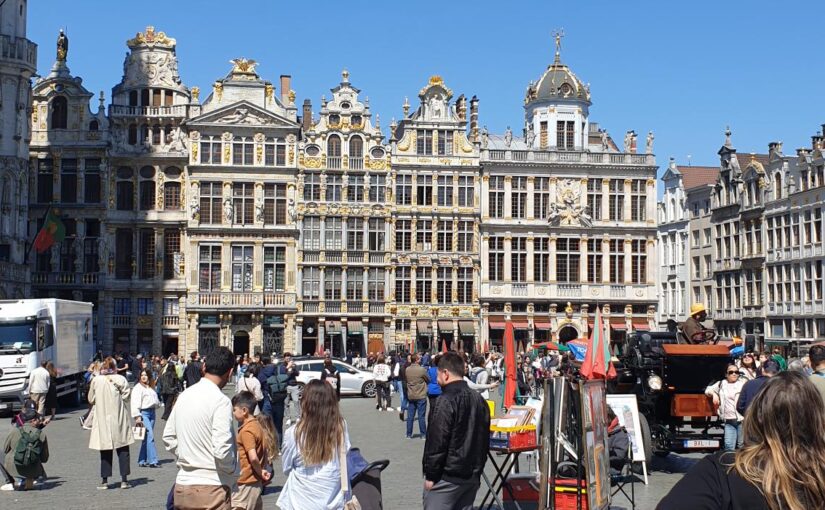Charlotte and Emily Brontë travelled to Brussels, Belgium in early 1842. It was a moment which shaped their lives to come, and which would change the course of literary history. I made my first visit to this fine city this week, and I’m travelling back to Yorkshire as I type this.
I was lucky enough to be invited to Brussels to present a talk to the Brussels Brontë Group headed by Helen MacEwan, who herself has written a fine biography of Winifred Gerin and a brilliant volume entitled The Brontës In Brussels amidst other work.
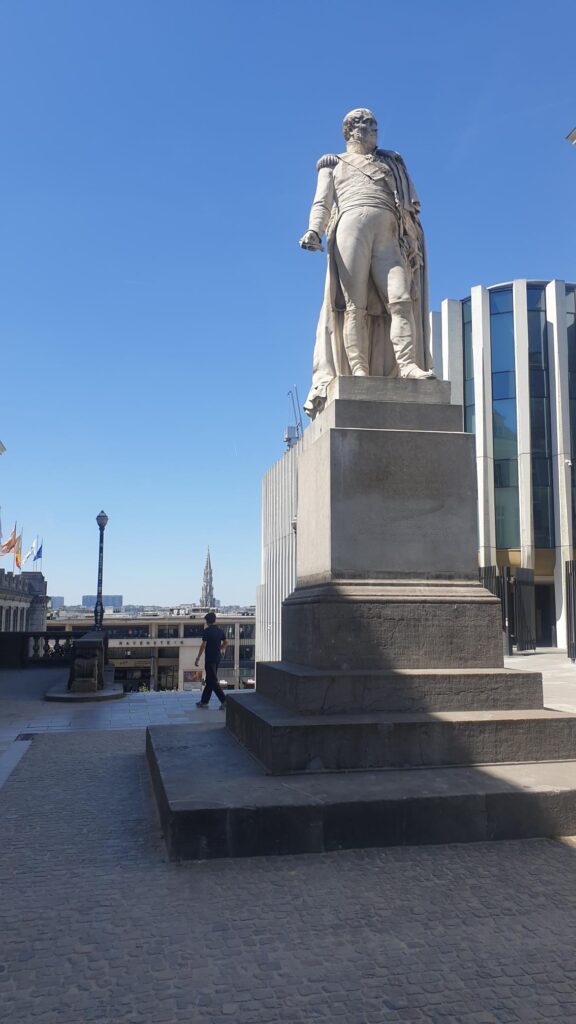
All in the group made me and my wife feel very welcome, so I never experienced the deep melancholy which frequently descended upon Charlotte Brontë in the city and which led to her novels The Professor and Villette. I gave a talk on Saturday morning, the subject of which was: “Doubt, Defiance and Devotion: Faith and the Brontës.” I’m pleased to say that the talk seemed to be well received, and there was an international audience of very knowledgeable Brontë lovers, including people who had travelled from Ukraine and the United States.
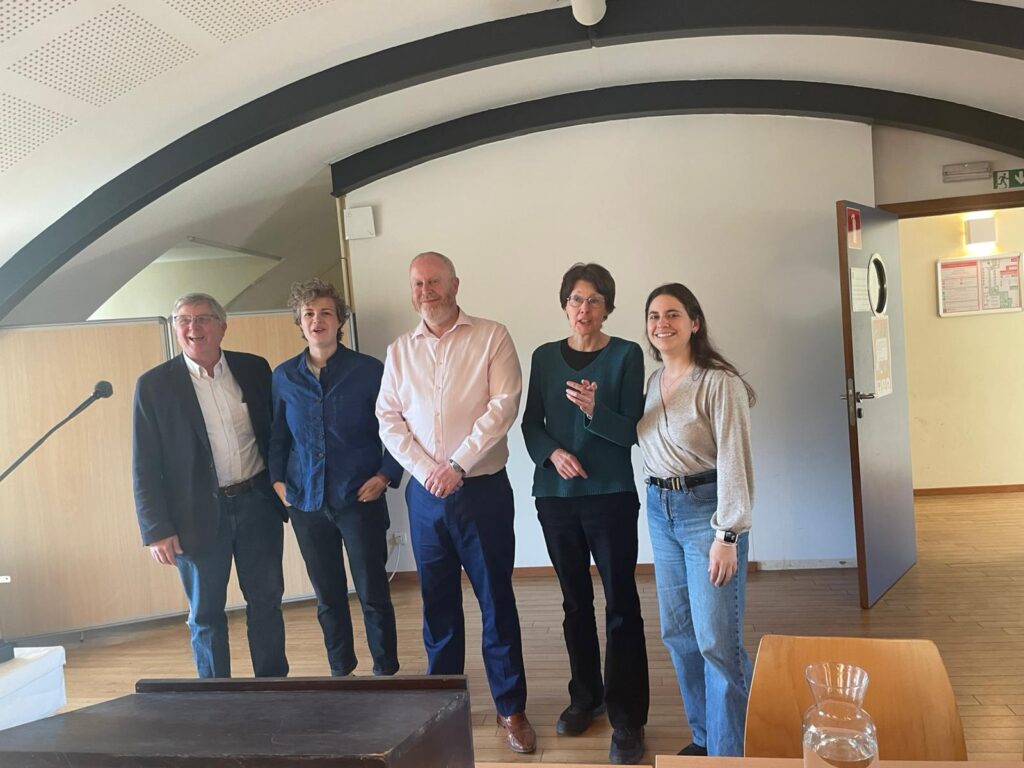
Also giving a talk on the day was Dr. Charlotte Jones of Oxford University, and I have to say that I really enjoyed her presentation on “Some Untamed Ferocity: The Brontës Among The Moderns.” It was a fascinating look at how three 20th Century writers, Stella Gibbons, May Sinclair and Virginia Woolf wrote about the Brontë sisters and their works.
There will be much more on my talk in coming posts, and on the Brussels and Charlotte and Emily’s time there. I visited many sites associated with the Brontës, including the site of the Pensionnat Heger school, the park featured in Villette and the Catholic cathedral where both Charlotte Brontë and her fictional creation Lucy Snowe went to confession. Here’s a short video I made at the beautiful cathedral.
Here too is Lucy Snowe’s account of it:
‘One evening – and I was not delirious: I was in my sane mind, I got up – I dressed myself, weak and shaking. The solitude and the stillness of the long dormitory could not be borne any longer; the ghastly white beds were turning into spectres – the coronal of each became a death’s-head, huge and sun-bleached – dead dreams of an elder world and mightier race lay frozen in their wide gaping eyeholes. That evening more firmly than ever fastened into my soul the conviction that Fate was of stone, and Hope a false idol – blind, bloodless, and of granite core. I felt, too, that the trial God had appointed me was gaining its climax, and must now be turned by my own hands, hot, feeble, trembling as they were. It rained still, and blew; but with more clemency, I thought, than it had poured and raged all day. Twilight was falling, and I deemed its influence pitiful; from the lattice I saw coming night-clouds trailing low like banners drooping. It seemed to me that at this hour there was affection and sorrow in Heaven above for all pain suffered on earth beneath; the weight of my dreadful dream became alleviated – that insufferable thought of being no more loved – no more owned, half-yielded to hope of the contrary – I was sure this hope would shine clearer if I got out from under this house-roof, which was crushing as the slab of a tomb, and went outside the city to a certain quiet hill, a long way distant in the fields. Covered with a cloak (I could not be delirious, for I had sense and recollection to put on warm clothing), forth I set. The bells of a church arrested me in passing; they seemed to call me in to the salut, and I went in. Any solemn rite, any spectacle of sincere worship, any opening for appeal to God was as welcome to me then as bread to one in extremity of want. I knelt down with others on the stone pavement. It was an old solemn church, its pervading gloom not gilded but purpled by light shed through stained glass.
Few worshippers were assembled, and, the salut over, half of them departed. I discovered soon that those left remained to confess. I did not stir. Carefully every door of the church was shut; a holy quiet sank upon, and a solemn shade gathered about us. After a space, breathless and spent in prayer, a penitent approached the confessional. I watched. She whispered her avowal; her shrift was whispered back; she returned consoled. Another went, and another. A pale lady, kneeling near me, said in a low, kind voice: – “Go you now, I am not quite prepared.”
Mechanically obedient, I rose and went. I knew what I was about; my mind had run over the intent with lightning-speed. To take this step could not make me more wretched than I was; it might soothe me.
The priest within the confessional never turned his eyes to regard me; he only quietly inclined his ear to my lips. He might be a good man, but this duty had become to him a sort of form: he went through it with the phlegm of custom. I hesitated; of the formula of confession I was ignorant: instead of commencing, then, with the prelude usual, I said: – “Mon père, je suis Protestante.”
He directly turned. He was not a native priest: of that class, the cast of physiognomy is, almost invariably, grovelling: I saw by his profile and brow he was a Frenchman; though grey and advanced in years, he did not, I think, lack feeling or intelligence. He inquired, not unkindly, why, being a Protestant, I came to him?
I said I was perishing for a word of advice or an accent of comfort. I had been living for some weeks quite alone; I had been ill; I had a pressure of affliction on my mind of which it would hardly any longer endure the weight.
“Was it a sin, a crime?” he inquired, somewhat startled. I reassured him on this point, and, as well as I could, I showed him the mere outline of my experience.
He looked thoughtful, surprised, puzzled. “You take me unawares,” said he. “I have not had such a case as yours before: ordinarily we know our routine, and are prepared; but this makes a great break in the common course of confession. I am hardly furnished with counsel fitting the circumstances.”
Of course, I had not expected he would be; but the mere relief of communication in an ear which was human and sentient, yet consecrated – the mere pouring out of some portion of long accumulating, long pent-up pain into a vessel whence it could not be again diffused – had done me good. I was already solaced.
“Must I go, father?” I asked of him as he sat silent.
“My daughter,” he said kindly – and I am sure he was a kind man: he had a compassionate eye – “for the present you had better go: but I assure you your words have struck me. Confession, like other things, is apt to become formal and trivial with habit. You have come and poured your heart out; a thing seldom done. I would fain think your case over, and take it with me to my oratory. Were you of our faith I should know what to say – a mind so tossed can find repose but in the bosom of retreat, and the punctual practice of piety. The world, it is well known, has no satisfaction for that class of natures. Holy men have bidden penitents like you to hasten their path upward by penance, self-denial, and difficult good works. Tears are given them here for meat and drink – bread of affliction and waters of affliction – their recompence comes hereafter. It is my own conviction that these impressions under which you are smarting are messengers from God to bring you back to the true Church. You were made for our faith: depend upon it our faith alone could heal and help you – Protestantism is altogether too dry, cold, prosaic for you. The further I look into this matter, the more plainly I see it is entirely out of the common order of things. On no account would I lose sight of you. Go, my daughter, for the present; but return to me again.”
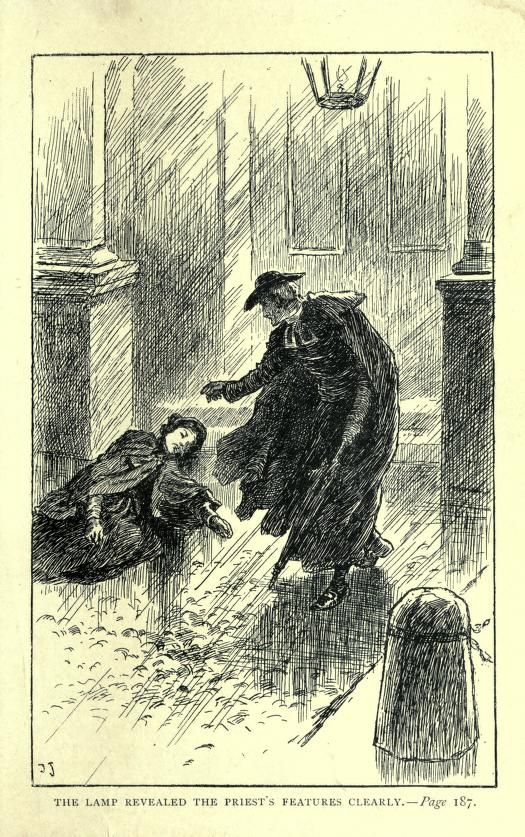
I certainly hope to return to Brussels again, it was warm and the reception my wife and I received was equally warm. Thank you to all who came to my talk, and I hope all of you can join me next week for another new Brontë blog post, which will have a lot more on Brussels.
